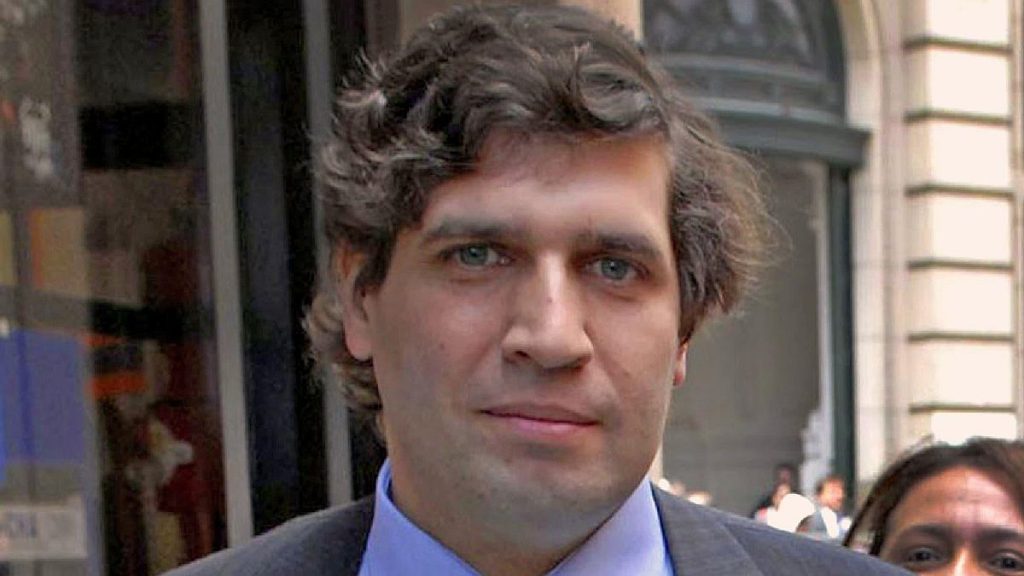The official delegation begins an important week of technical negotiations in the United States

That’s what IMF Managing Director Kristalina Georgieva suggested Friday afternoon before the delegation’s arrival, when she told Reuters there was “still a lot to do” in the face of the deal. However, they emphasized in the government that the talks are on the right track, and some officials in the Economic Cabinet consider it important not to delay the last tranche of negotiations in the face of exchange and financial pressures. They affirm from both sides of the table that after the elections the dialogue accelerated and the possibility of understanding became clearer today.
The most ambitious perspective within the government is to conclude the technical agreement before the end of December and then proceed to address it in the National Congress and in the Board of Directors of the Fund, where the political decision of the main authorities will be weighed. Notably the United States, the only country with the power to veto the agency’s special tariffs.
Officials who arrived in the US capital on Sunday morning set out to narrow the key sources of discrepancy in order to prepare the macroeconomic forecasts that will accompany the Extended Facility Program (EFF). ) which is being negotiated today. Program that would allow refinancing religion Of the 45 thousand million dollars contracted by Mauricio Macri, but that will leave a permanent guardianship of the country’s economic policy for the next few years.
In addition to Chodos, the delegation consists of Deputy Economy Minister Fernando Mora. Secretary of the Treasury, Raúl Rego; Undersecretary of the Ministry of Finance Ramiro Tosi. Second Vice President of the BCRA, Jorge Carrera; and deputy director of investigations at the center, German Feldman. They will not be the ones to sign a final understanding because that responsibility rests with Guzmán and the head of the monetary authority, Miguel Pesci, who has not traveled to Washington.
Last week, when speaking to CGT, The minister stressed that the government would not sign any adjustment program, and promised a stronger recovery in the purchasing power of wages and ruled out that the agreement would include a labor reform, which is one of the classic requirements imposed by the fund on extended financing funds. In addition, he reiterated that a grace period until 2026 is being negotiated, in line with the maximum window of four and a half years that this credit line provides from the fund. The maximum repayment period is ten years.
For his part, Pesci spoke to the Iraqi Investment Association and emphasized that discussions with the International Monetary Fund do not include a jump in currency devaluation. Although she emphasized that, “to the extent that the inflationary process will allow”, there will be a rise in the rate of consumption (which in 2021 lags far behind prices).
points in discussion
The biggest sticking points regarding the agreement pass through the financial track and, above all, its 2022 financing plan; The rate of revitalization of the economy in the coming years and, in line with this, the rate of recovery of reserves; and how the exchange rate gap will be reduced. The main focus of the talks this week in Washington will be with Julie Cusack and Luis Cupedo, the IMF officials responsible for negotiating with the Argentine government.
On the first point, Guzmán is currently proposing a primary deficit of 3.3% of GDP for next year, as included in the draft budget for 2022. The fund is seeking a faster adjustment. But, according to official sources, the biggest contradiction is how to finance a red color of such dimensions. The economy’s expectation was to get 2% of output via debt in pesos, 1.1% through multilateral organizations and demand 1.8% from the BCRA. This last figure is rejected by the organism, which requires a faster reduction of monetary emissions.
One alternative under consideration is to increase the level of net funding from multilateral entities, as published by the Ámbito Foundation. In addition, as the Minister has retracted on various occasions and acknowledged by some official sources, the possibility of the International Monetary Fund to repay the Special Drawing Rights used by the government to cancel the maturities of capital for this year is underway by about 4000 million US dollars. Consulting firm 1816 indicated that depending on how these resources were settled, if their access was achieved, they would cover financial needs equivalent to 1% of GDP (or 2% if sold to CCL).
Meanwhile, Alberto Fernandez asked the agency on Thursday to make its assessment of the failed preparedness program that Macri signed in 2018 before concluding the new agreement. a program that included strong fiscal and monetary adjustment but did not achieve the stated goals of lowering inflation and stabilizing the exchange rate front; that it violated the statutes of the fund by financing the outflow of capital; And that it has a political drive, as acknowledged by Mauricio Clavier Caroni, the former US delegate to the International Monetary Fund and current head of the Islamic Development Bank.
Fund sources indicated that the staff review report will be dealt with by the board in the week starting on December 20, as the intention is that it will be done before a new program is approved. The fact is that it is an assessment of a technical nature and it is common agency practice after every “exceptional access” agreement, such as the one taken by Macri, so it is difficult to move the negotiating scale. Although his immediate treatment by the council appears to be reasserting that time has been cut short.

“Future teen idol. Hardcore twitter trailblazer. Infuriatingly humble travel evangelist.”










